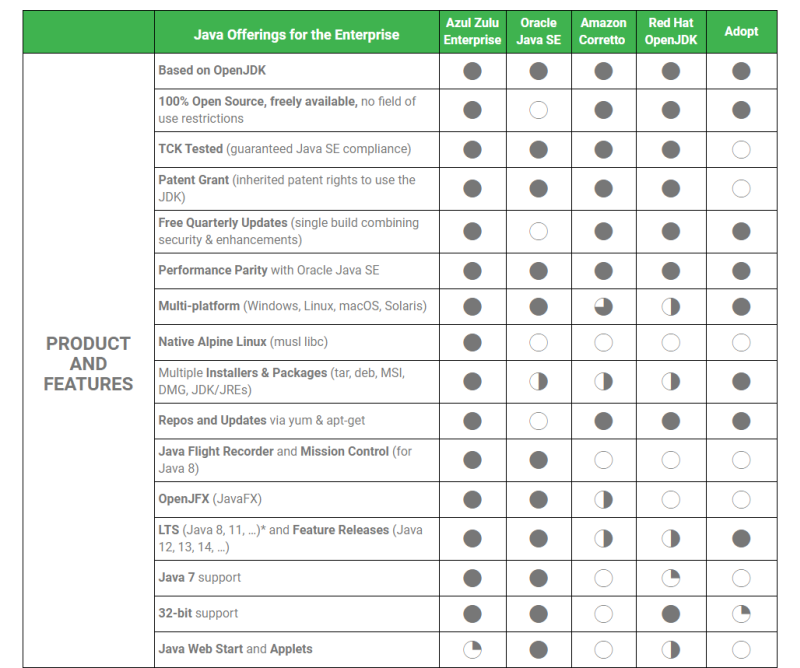| Microsoft Jumps on the OpenJDK Bandwagon |
| Written by Nikos Vaggalis | |||
| Friday, 09 April 2021 | |||
|
Microsoft is releasing its own build of Java's OpenJDK, joining the likes of Azul, RedHat and Amazon. Why would Microsoft engage in that when there's so many choices already? One reason is to establish a foothold on Java's market share.The other is that internally it uses Java a lot in its own infrastructure, especially its Azure ecosystem (Azure Spring Cloud, Azure App Service, Azure Functions, Azure Kubernetes), and for that it needs to have its own uniform and universal build applied to them : Microsoft deploys over 500,000 Java Virtual Machines (JVMs) internally – excluding all Azure services and customer workloads – with needs that go from back-end microservices to Big Data systems, message brokers, event streaming services, and gaming servers. More than 140,000 of these JVMs are already based on the Microsoft Build of OpenJDK. However here comes Microsoft's specialization of the build as it: "may contain backported fixes and enhancements we deem important to our customers and our internal users,which may have not yet been formally backported upstream"; another reason that Microsoft is eager to have its own solution. The build is for Java version 11 based on OpenJDK 11.0.10+9, targets server and desktop environments on macOS, Linux, and Windows and it's on LTS until at least 2024. However this is a preview build: because we want to give our customers and users an opportunity to provide feedback on things like the packaging and installation experience before we ship a production-ready Generally Available release. Microsoft won't stop at Java 11 though;once Java 17 is finalized they'll also release binaries for that version as well. So why would you opt for Microsoft's build rather than the rest?
However the OpenJDK is not just about binaries. As Dr Heinz M. Kabutz points out in his contribution to 97 Things Every Java Programmer Should Know edited by Kevlin Henney and Trisha Gee, you really ought to "Read OpenJDK Daily" as you can learn a lot from the coding practices employed in writing it. OpenJDK consists of millions of lines of Java code. Almost every class violates some “clean code” guidelines. The real world is messy. There is no such thing as “clean code,” and we will struggle to even define what that is. And how do you keep up to date with the news revolving around the Java ecosystem and especially OpenJDK? The definitive source for that to follow is FooJay which I describe in detail in "Foojay - All About Java and the OpenJDK" all the OpenJDK and Java info you need, cleaned up, categorized and nicely presented under one roof. More InformationRelated ArticlesThe True State of Java and its Ecosystem Foojay - All About Java and the OpenJDK The Insider's Guide to the Java Web Developer Nanodegree To be informed about new articles on I Programmer, sign up for our weekly newsletter, subscribe to the RSS feed and follow us on Twitter, Facebook or Linkedin.
Comments
or email your comment to: comments@i-programmer.info |
|||
| Last Updated ( Friday, 09 April 2021 ) |




